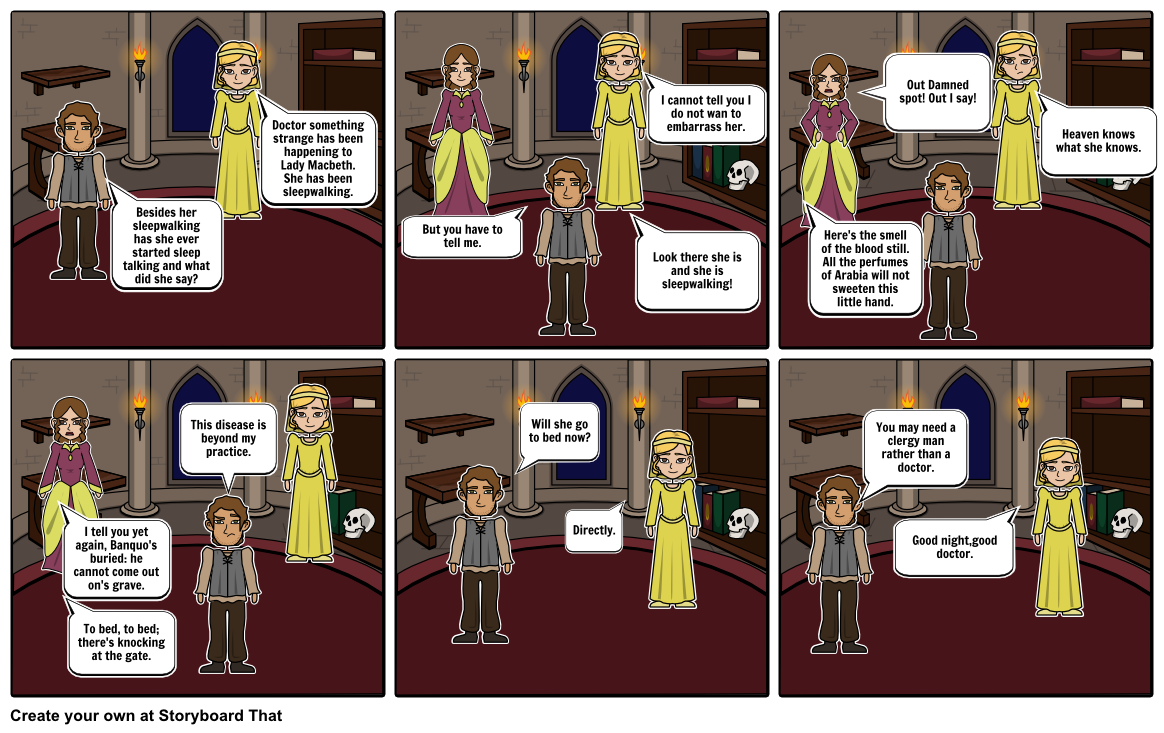

But now, "I have supp'd full with horrors / Direness, familiar to my slaughterous thoughts, / Cannot once start me" (5.5.13-15). There was a time, he says, when such a shriek in the night would have given him the chills and when a story of horror would have made his hair stand on end. While Seyton goes to investigate the noise, Macbeth congratulates himself on his own savageness, saying, "I have almost forgot the taste of fears" (5.5.9). Macbeth's boasting is interrupted by " A cry of women within" (5.5.7, s.d.). As we will see, however, his own soldiers will go over to the other side as soon as they have a chance, making the siege very short. By "those that should be ours" Macbeth means all the Scottish thanes who have gone over to the other side, including Angus, Lennox, Ross, and Macduff. Then he adds, "Were they not forced with those that should be ours, / We might have met them dareful, beard to beard, / And beat them backward home" (5.5.5-7). He says that the castle "Will laugh a siege to scorn" (5.5.3), and he predicts that his enemies will starve and sicken in front of Dunsinane's walls. Then Macbeth proceeds to deliver a pep talk, directed at Seyton, the soldiers, and - most of all - himself. The "cry" is either what the soldiers should say when they see the enemy, or the message that Macbeth has heard so often that he is sick of it. The banners are meant to show his enemies that he will not surrender. He calls out, "Hang out our banners on the outward walls. ≺ messenger reports that Birnam woods is coming to Dunsinane Macbeth goes out to meet his fate.Įnter Macbeth, Seyton, and Soldiers, with drum and colours:Īt Dunsinane, the royal castle that was King Duncan's and is now Macbeth's, we see Macbeth preparing for battle. Macbeth expresses his defiance of the forces marching against him, then hears a cry of women and receives the news of his wife's death. Enter Macbeth, Seyton, and Soldiers, with drum and colours.Detailed Summary of Macbeth, Act 5, Scene 5:


 0 kommentar(er)
0 kommentar(er)
